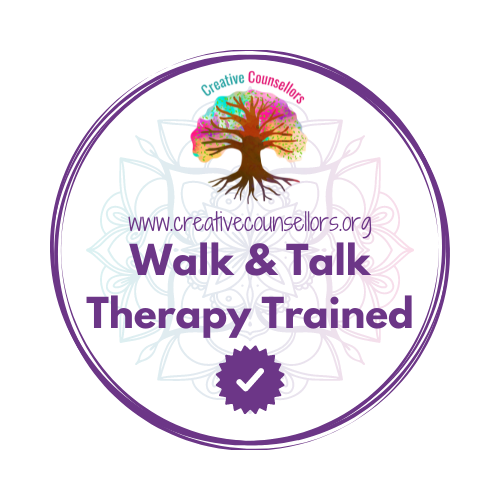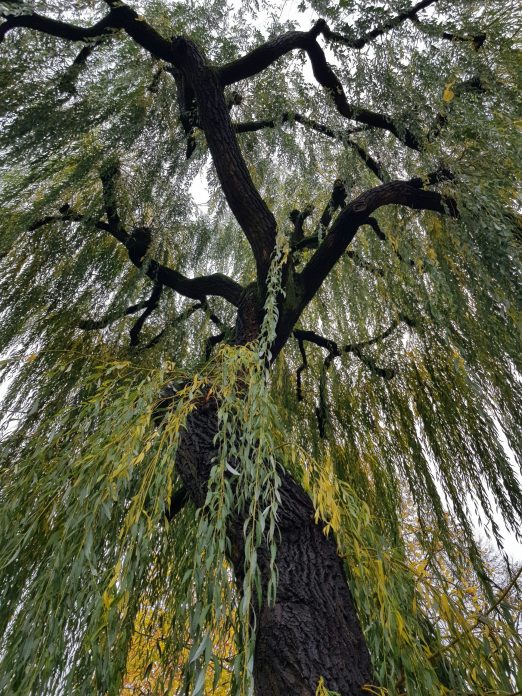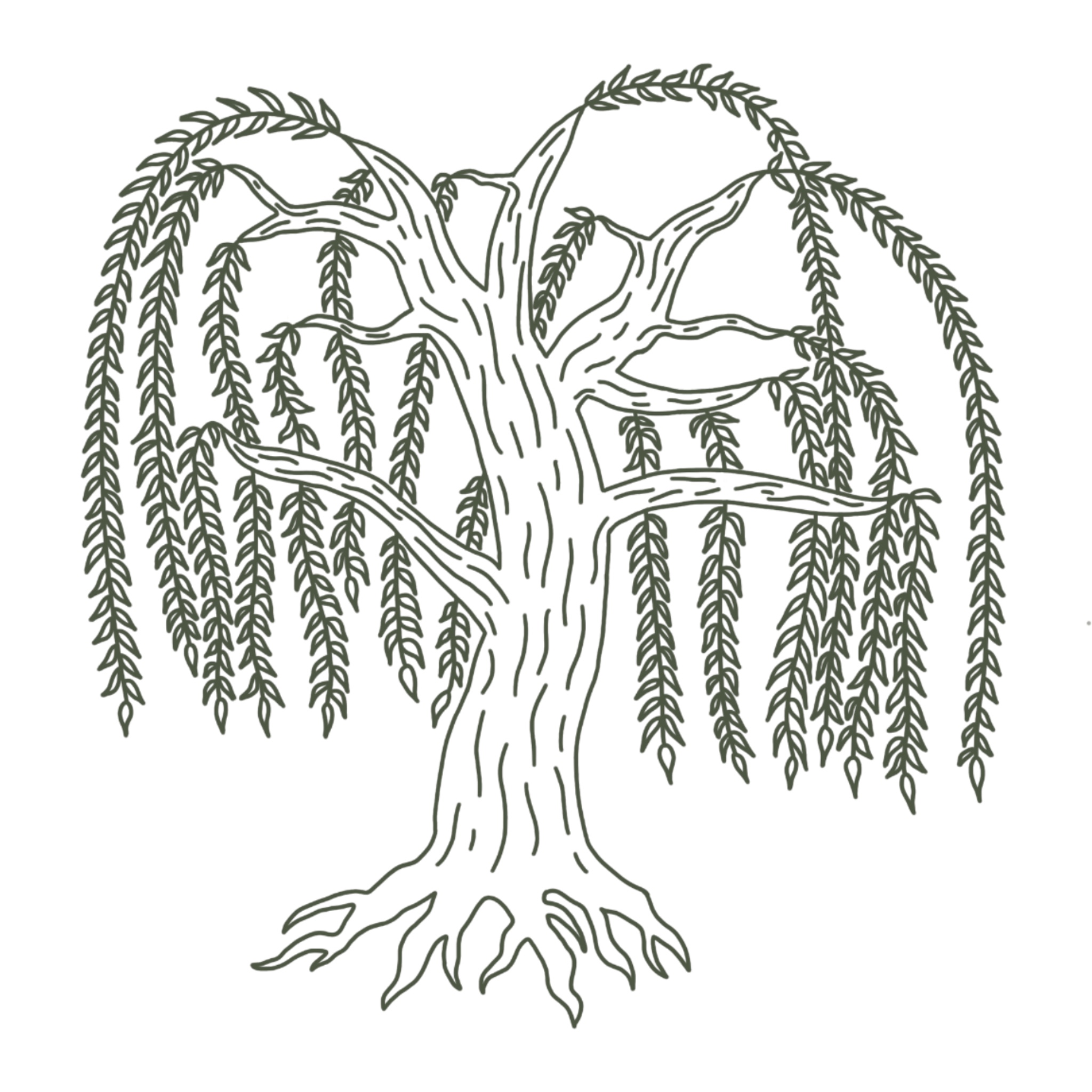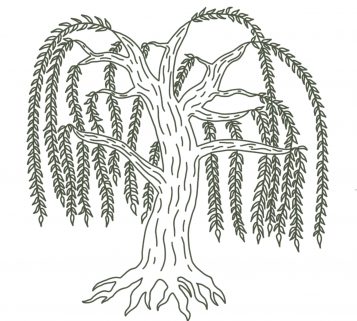Short on time?
Sometimes less is more. Here’s a simpler view of Willow & Thyme, so you can begin with ease.
You’re already on your way; I’ll meet you where you are.
Psychotherapy and counselling for adults [18+] navigating transitions in every season of life.
Finding your footing in transition
Support for life in motion [or at a standstill]
Life can feel like a never-ending to-do list, full of the things we're told we should do, carrying the weight of the constant demands and pressures of life.
In therapy, life changes are often called transitions. Transitions, anticipated or unexpected, are the process of coping, adapting, and adjusting to one situation from another. Transitions affect our thoughts, feelings, behaviours, and, sometimes, our sense of identity.
On one end, you might be on autopilot, rushing from task to task, exhausted and barely keeping up. On the other, you may feel exasperated, searching for signs of progress, taking one step forward and two steps back. Disruptions whirl by, making fulfilment and stability seem just out of reach.
In therapy, life changes are often called transitions. Transitions, anticipated or unexpected, are the process of coping, adapting, and adjusting to one situation from another. Transitions affect our thoughts, feelings, behaviours, and, sometimes, our sense of identity.
If these words resonate, you're not alone.
In therapy, life changes are often called transitions. Transitions, anticipated or unexpected, are the process of coping, adapting, and adjusting to one situation from another. Transitions affect our thoughts, feelings, behaviours, and, sometimes, our sense of identity.
Whether life feels overwhelming or stagnant, that discomfort often signals a season of change. Just because things are changing, whether we want them to or not, doesn't mean we feel ready. Times of transition can leave us unsettled, unsure, anxious, or low in mood. Despite the universal nature of transition, pop culture often forgets that spring and summer are not the only seasons. Many of us feel shame for not coping “well enough” during darker autumns and harsh winters.
In therapy, life changes are often called transitions. Transitions, anticipated or unexpected, are the process of coping, adapting, and adjusting to one situation from another. Transitions affect our thoughts, feelings, behaviours, and, sometimes, our sense of identity.
Together, we can make room for the nuances and contradictions of change, while gently uncovering the opportunities hidden within these transitions. You don’t have to perform or push. With accountability to gentleness, we can work toward a steadier, more compassionate relationship with yourself and the world around you—one step at a time.
In therapy, life changes are often called transitions. Transitions, anticipated or unexpected, are the process of coping, adapting, and adjusting to one situation from another. Transitions affect our thoughts, feelings, behaviours, and, sometimes, our sense of identity.





Weathering Change
Who I work with
I often work with thoughtful, sensitive people who are hard on themselves, anxious overthinkers who feel stuck in self-criticism, and those navigating identity, self-worth, or quiet anger. Some are moving through significant life changes, while others feel life is passing them by.
No one fits neatly into a single 'category', but these areas reflect some of the patterns and experiences I encounter in session:
- Life transitions: Career change, redundancy or retirement, menstrual cycle & menopause support, cultural issues, immigration, or life as an 'expat', parenting, relationship challenges, emerging adulthood, college or university, loss
- Identity & sense of self
- Understanding family dynamics
- Confidence & self-esteem
- Stress & Burnout
- Motivation
- Support for grief, bereavement, and baby loss
- Conflict at work or in education
- Anxiety & overthinking
- Gender & sexuality
You can learn more about what to expect in therapy below. You'll find fees and session details on the Services page.
Your Next Season
What to expect in therapy
Whether you’re looking for short-term support or seeking to better understand long-term patterns in your life, Willow & Thyme Therapy meets you where you are, blending person-centred, psychodynamic, and ecotherapy approaches with curiosity and care. To translate the theory and evidence base in to something more tangible, I describe my style as:
Also known as client-centred or Rogerian therapy, person-centred therapy focuses on creating a safe, non-judgmental space where you can explore your feelings and experiences at your own pace. The work centres on empathy, honesty, and acceptance, helping you develop greater self-awareness and trust in your own direction.
Psychodynamic therapy explores how past experiences influence present-day emotions and relationships. Through reflection and the therapeutic relationship itself, this approach helps bring deeper understanding to recurring themes or struggles, offering the possibility of lasting emotional change and greater freedom in how you relate to yourself and others.
Ecotherapy, or nature-based therapy, is grounded in the understanding that human wellbeing is inseparable from the health of the natural world. It invites reflection on the ways we both affect are affected by the more-than-human world. Sessions may take place outdoors or draw on nature’s grounding and restorative qualities indoors. This approach offers space to explore feelings of connection, belonging, and renewal, as well as the grief, anxiety, or responsibility that can arise in the face of an ever-changing world. By engaging with nature as a living relationship rather than a passive object, ecotherapy can help restore balance, deepen insight, and support a sense of meaning in an uncertain world.
Relational — rooted in professionalism, authenticity, and trust
Flexible — guided by your pace, not by performance, pressure, or metrics
Attuned — centred on self-empowerment and self-understanding, following your lead to organic, committed change
Seasonal — inspired by nature and guided by the cycles of life: past, present, and future
Also known as client-centred or Rogerian therapy, person-centred therapy focuses on creating a safe, non-judgmental space where you can explore your feelings and experiences at your own pace. The work centres on empathy, honesty, and acceptance, helping you develop greater self-awareness and trust in your own direction.
Psychodynamic therapy explores how past experiences influence present-day emotions and relationships. Through reflection and the therapeutic relationship itself, this approach helps bring deeper understanding to recurring themes or struggles, offering the possibility of lasting emotional change and greater freedom in how you relate to yourself and others.
Ecotherapy, or nature-based therapy, is grounded in the understanding that human wellbeing is inseparable from the health of the natural world. It invites reflection on the ways we both affect are affected by the more-than-human world. Sessions may take place outdoors or draw on nature’s grounding and restorative qualities indoors. This approach offers space to explore feelings of connection, belonging, and renewal, as well as the grief, anxiety, or responsibility that can arise in the face of an ever-changing world. By engaging with nature as a living relationship rather than a passive object, ecotherapy can help restore balance, deepen insight, and support a sense of meaning in an uncertain world.
I call this framework accountability to gentleness: supporting you to honour commitments to yourself in a way that feels sustainable and compassionate.
Also known as client-centred or Rogerian therapy, person-centred therapy focuses on creating a safe, non-judgmental space where you can explore your feelings and experiences at your own pace. The work centres on empathy, honesty, and acceptance, helping you develop greater self-awareness and trust in your own direction.
Psychodynamic therapy explores how past experiences influence present-day emotions and relationships. Through reflection and the therapeutic relationship itself, this approach helps bring deeper understanding to recurring themes or struggles, offering the possibility of lasting emotional change and greater freedom in how you relate to yourself and others.
Ecotherapy, or nature-based therapy, is grounded in the understanding that human wellbeing is inseparable from the health of the natural world. It invites reflection on the ways we both affect are affected by the more-than-human world. Sessions may take place outdoors or draw on nature’s grounding and restorative qualities indoors. This approach offers space to explore feelings of connection, belonging, and renewal, as well as the grief, anxiety, or responsibility that can arise in the face of an ever-changing world. By engaging with nature as a living relationship rather than a passive object, ecotherapy can help restore balance, deepen insight, and support a sense of meaning in an uncertain world.
Through traditional talk therapy, walk-and-talk ecotherapy, or online counselling, we will co-create a safe, confidential space to support your exploration.
Also known as client-centred or Rogerian therapy, person-centred therapy focuses on creating a safe, non-judgmental space where you can explore your feelings and experiences at your own pace. The work centres on empathy, honesty, and acceptance, helping you develop greater self-awareness and trust in your own direction.
Psychodynamic therapy explores how past experiences influence present-day emotions and relationships. Through reflection and the therapeutic relationship itself, this approach helps bring deeper understanding to recurring themes or struggles, offering the possibility of lasting emotional change and greater freedom in how you relate to yourself and others.
Ecotherapy, or nature-based therapy, is grounded in the understanding that human wellbeing is inseparable from the health of the natural world. It invites reflection on the ways we both affect are affected by the more-than-human world. Sessions may take place outdoors or draw on nature’s grounding and restorative qualities indoors. This approach offers space to explore feelings of connection, belonging, and renewal, as well as the grief, anxiety, or responsibility that can arise in the face of an ever-changing world. By engaging with nature as a living relationship rather than a passive object, ecotherapy can help restore balance, deepen insight, and support a sense of meaning in an uncertain world.
This time, this work it’s yours.
Also known as client-centred or Rogerian therapy, person-centred therapy focuses on creating a safe, non-judgmental space where you can explore your feelings and experiences at your own pace. The work centres on empathy, honesty, and acceptance, helping you develop greater self-awareness and trust in your own direction.
Psychodynamic therapy explores how past experiences influence present-day emotions and relationships. Through reflection and the therapeutic relationship itself, this approach helps bring deeper understanding to recurring themes or struggles, offering the possibility of lasting emotional change and greater freedom in how you relate to yourself and others.
Ecotherapy, or nature-based therapy, is grounded in the understanding that human wellbeing is inseparable from the health of the natural world. It invites reflection on the ways we both affect are affected by the more-than-human world. Sessions may take place outdoors or draw on nature’s grounding and restorative qualities indoors. This approach offers space to explore feelings of connection, belonging, and renewal, as well as the grief, anxiety, or responsibility that can arise in the face of an ever-changing world. By engaging with nature as a living relationship rather than a passive object, ecotherapy can help restore balance, deepen insight, and support a sense of meaning in an uncertain world.


You set the rhythm
I walk alongside you
Mental health is complex and finding the right therapist can feel daunting. Here’s a simple starting point:
- Schedule a complimentary 30-minute telehealth consultation — Once you click "Book", the Client Portal will guide you the rest of the way. Select "online" or "telephone", pick the appointment that best fits your diary, and register with your contact details. That's it!
- Getting to know each other — We’ll talk about what brings you to therapy, what I offer, and what working together could look like.
- Making a plan — If we decide to work together, we’ll meet weekly or fortnightly for 60 minutes online, outdoors, or in the office.
Therapy honours the complexity of your life while supporting you to take manageable, meaningful steps forward. You set the rhythm, and I’ll walk alongside you as you navigate your path.
Get in touch
Need more information? Feel free to contact me using this form or the details below if you have any questions about how therapy works or the services I provide.
Those with professional enquiries, please contact me using this form or the details below.
I aim to respond to enquiries within 48 hours, excluding holidays weekends.

“I am a willow of the wilderness
Loving the wind that bent me.”
Ralph Waldo Emerson
©Shauna New is powered by WebHealer

